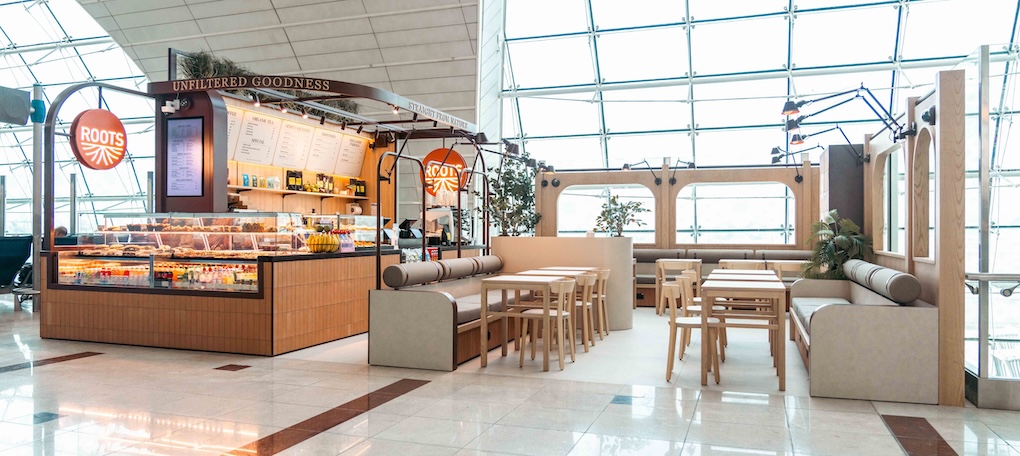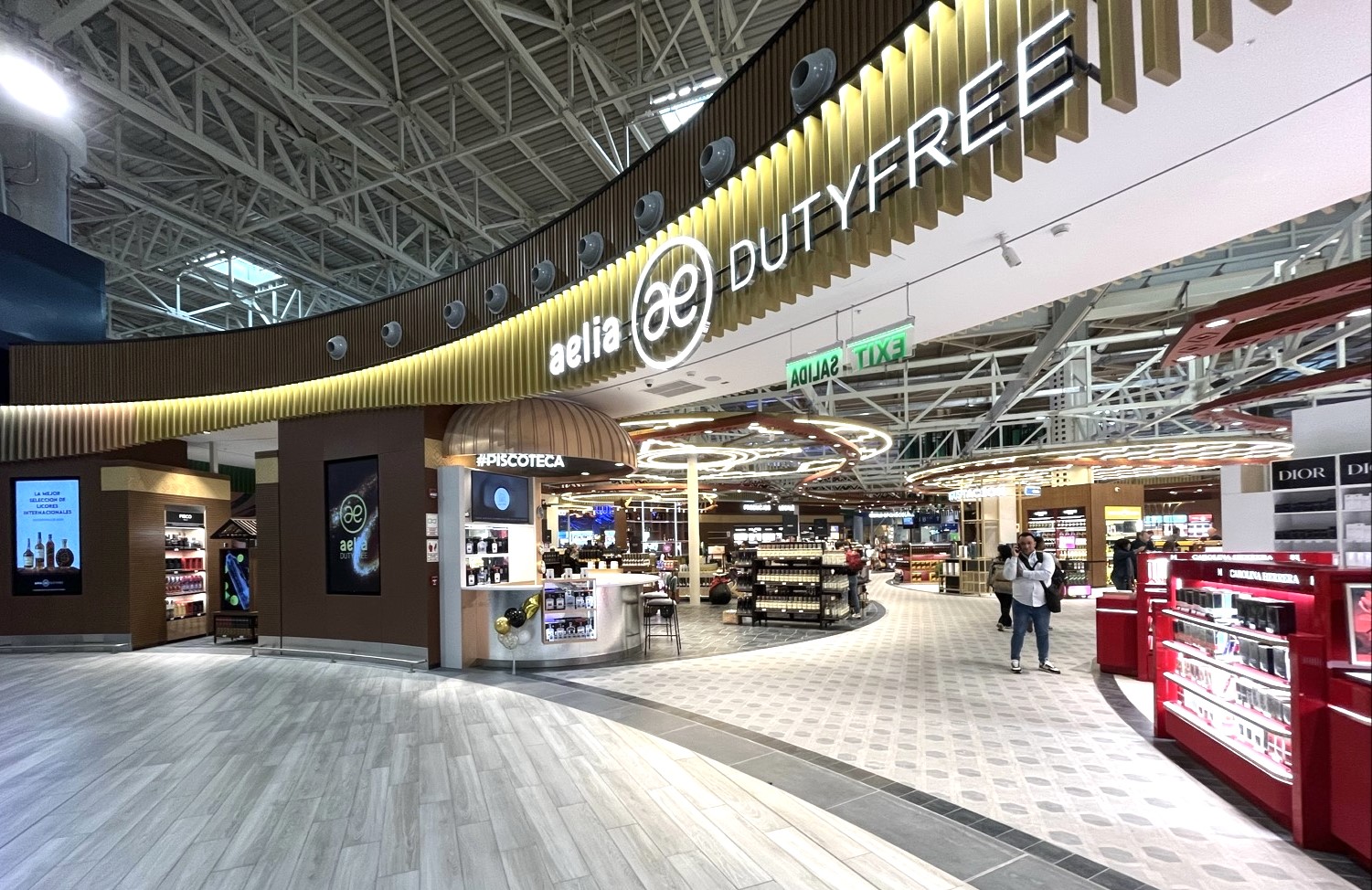INDIA. Travel through India’s leading airports and the sight of the Travel Food Services (TFS) logo will quickly become familiar, writes S. Shriram. You’ll see it on the uniforms of staff serving customers at food & beverage outlets, on the chef clothing of the women and men who are inspecting the food quality at kiosks, restaurants and food courts, or adorning the exterior of many of these locations.
The Travel Food Services logo is a symbol of one of the great players in airport dining and hospitality, one built by entrepreneur Sunil Kapur over the past two decades and still led by his family.
Kapur eyed the immense opportunity in commercial services in 2009, when the first two brownfield airports at Mumbai and Delhi were handed over to GVK Group and GMR Group respectively by Airports Authority of India, based on the privatisation policy of the Union Government.
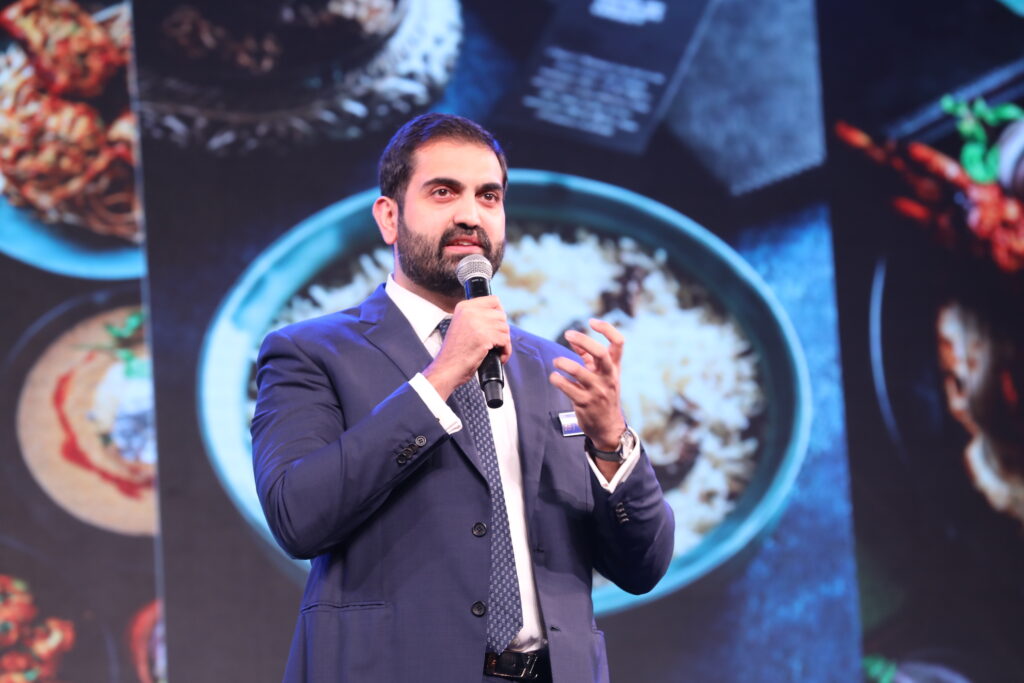
At the time, India had annual airport passenger traffic of around 100 million a year, with these two airports serving around 40% of that figure. Kapur was excited by the idea of developing preferred venues at which travellers could enjoy food, fast or slow, according to their needs.
Today, TFS operates over 80 brands across 350+ outlets, including food, lounges and retail formats, at 17 airports. The company extended its services beyond India to Kuala Lumpur International Airport in Malaysia in 2022 as part of its partnership with SSP.
TFS Executive Director Varun Kapur sums up the evolution of the market and the opportunity.
“Aviation is largely linked to the country’s success and in India, the pace at which it is growing is remarkable. As a highly aspirational country, with a clear trend of increasing consumption for the past few years, consumers are demanding. We are seeing a big trend in first-time travellers, especially leisure travel post-pandemic, alongside business travel. And consumers today only want the best and do not wish to compromise.”
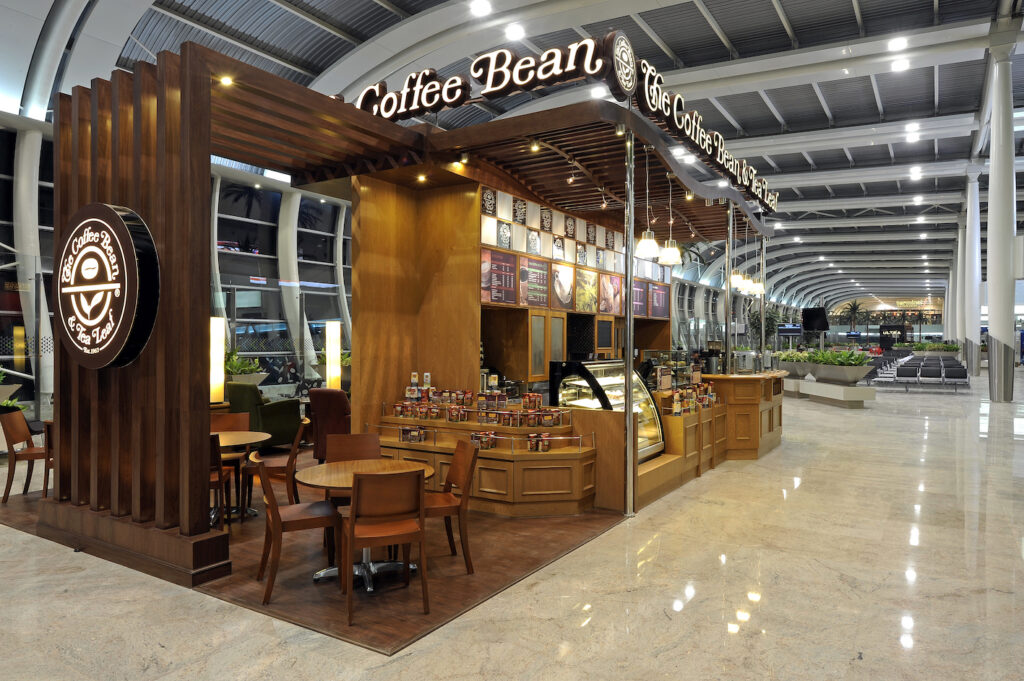
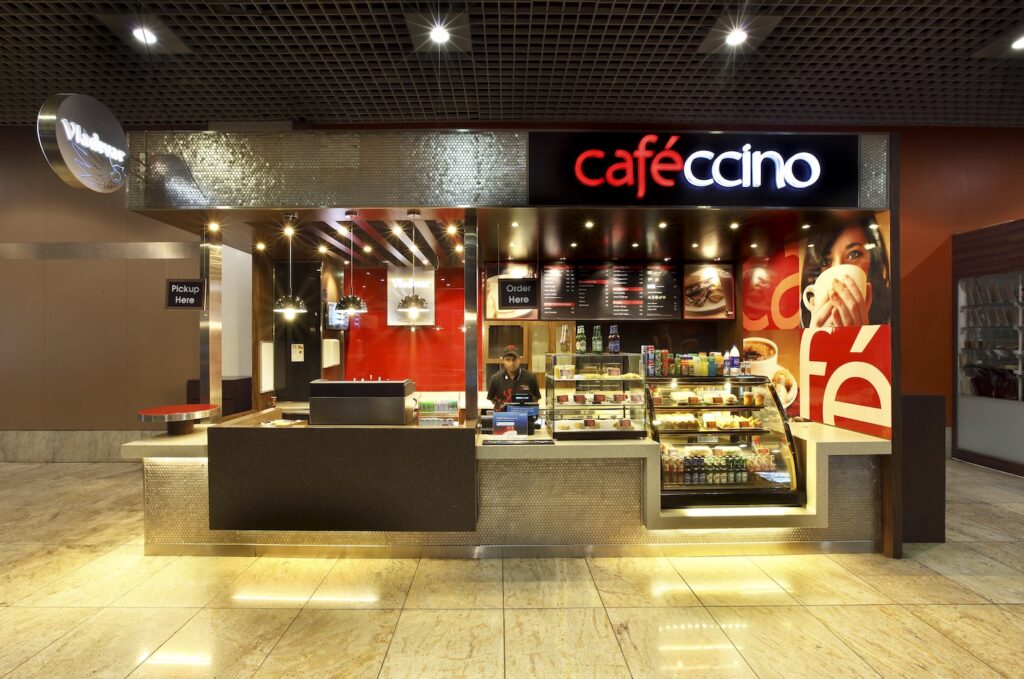
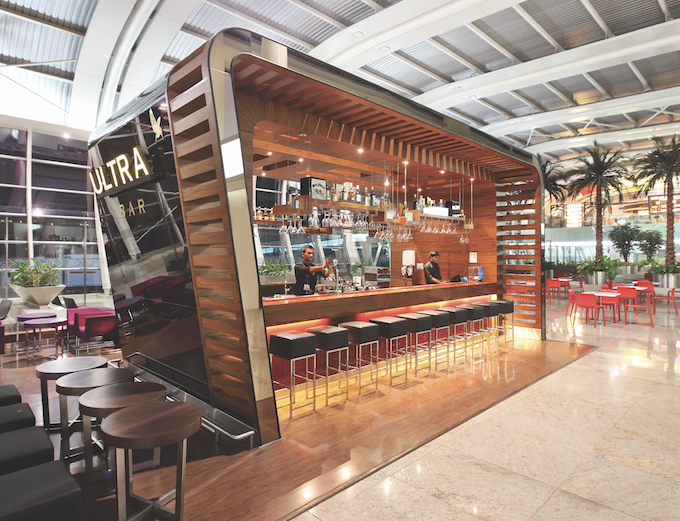
He says that the travel experience is no longer just about reaching the destination but an integral part is the journey itself. Therefore as stakeholders in the industry we need to ensure F&B and retail match up to customer expectations.
“Passengers are arriving early to the airports, and after checking-in, they head to the retail and food outlets to spend time. Even at the lounges we operate, we have seen a dramatic increase in the amount of time and number of passengers,” says Kapur.
The food mix is also in constant evolution. To keep operating costs low, it was common in the past to see pre-prepared and pre-cooked food at airport counters. But much has changed. ‘Live’ kitchens dish out hot Indian-style food at many airports, with Dilli Streat at Delhi Indira Gandhi International Airport a popular example among many. The buffet-style offer in most lounges is freshly prepared at the on-site kitchens.
This trend is also related to demand for healthy food, which has seen an upswing since the pandemic, says Kapur. “South Indian food items are perceived as healthier, with fresh ingredients and less fatty items, so we see an uptick in sales here,” he notes.
“It is not just in southern airports either. We see a similar trend at airports in other parts of the country. And the specifics of add-ons are interesting too; today, customers know exactly how their Dosas should be prepared and expect our outlets to be able to prepare products as per their needs.”
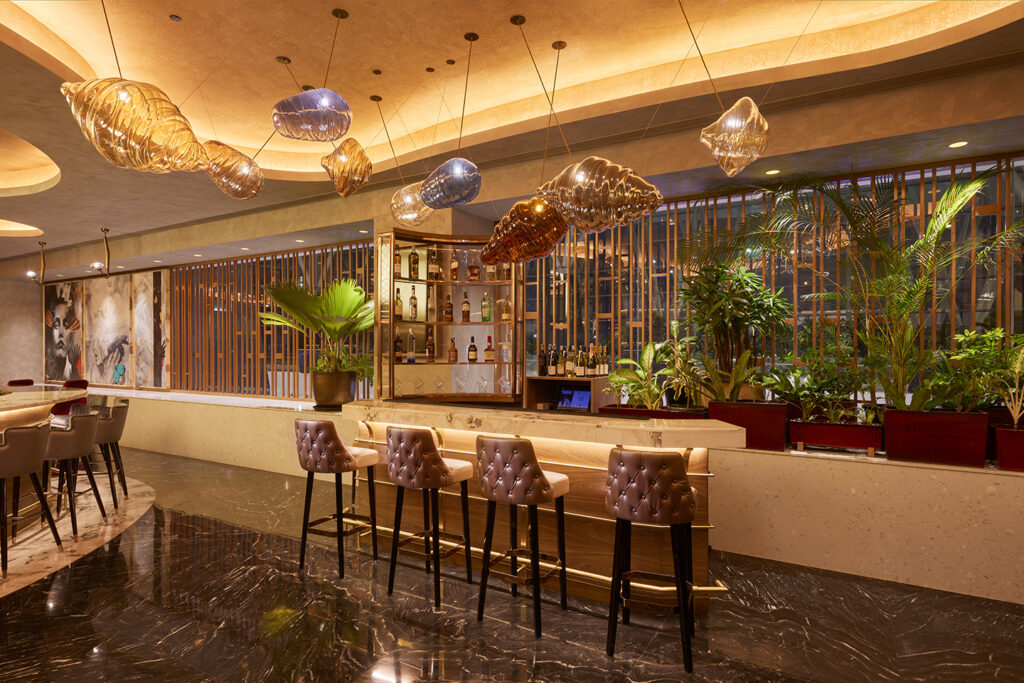
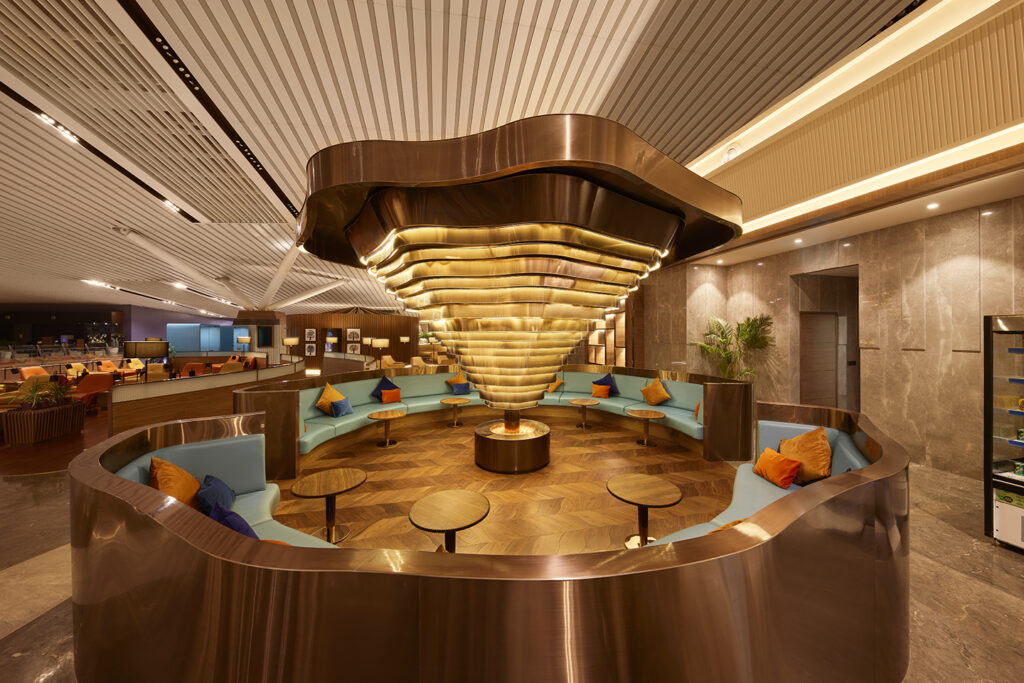
According to TFS, the share of non-vegetarian fare sold was over 45% pre-pandemic, it fell to around 35% over the past three years and is back at over 40%.
“Some of the health trends of the pandemic are continuing. Customers are looking for sustainability and doing good for the environment and for the community,” says Kapur.
Managing multiple brands across many airports adds complexity, but TFS says it is important to tailor options to local tastes as much as possible. Sense of Place is key to outlet design and menus, with the familiarity of regional brands an important component in concept development, alongside the reliability of national & international leading brands.
Customer demands and profiles also play their part in menu design. “Dwell times are higher for international passengers, so the menus are different for them, while it is important to sufficient locations with quick, takeaway food for domestic travellers,” says Kapur. “In some airports, the international passengers are primarily migrant labourers, so we build the menu there accordingly.”
Within drinks, cocktails and spirits are highly popular on the international side, while beer is surely a best seller in domestic departures. TFS does various bar concepts with the brand The Irish House being the market leader with a wide menu, larger seating space and more dwell time for passengers to sit longer, suiting multiple tastes.
While most customers are Indians, given the enormous domestic travel market, TFS also aims to meet demand from foreigners, many of whom are in India for work or leisure. Many of these also love Indian food, just as many Indians gravitate to western-style beverages and food from cappuccino coffee to burgers and pizzas.
“We sensitise our teams to acknowledge cultures, the way they communicate, the language and accent and of course we try to have options for the food to be less spicy to cater to passengers who may not have the spice quotient that is generally seen among native Indians,” he says.
Vast audience
Of the 330 million air passengers that 130+ Indian airports served during financial year 2022-23 (to 31 March), over 75% flew on domestic routes. That heavy volume presents a vast audience of consumers for TFS, and long hours of operation from early morning through to late evening, with flight delays adding to this.
Kapur states that the business runs on a 24/7 basis at Mumbai and Delhi airports, as the flights and passengers are present till late at night, and teams must ensure that food is ready to serve at the kiosks and lounges almost immediately for the early morning schedule from 5am onwards.
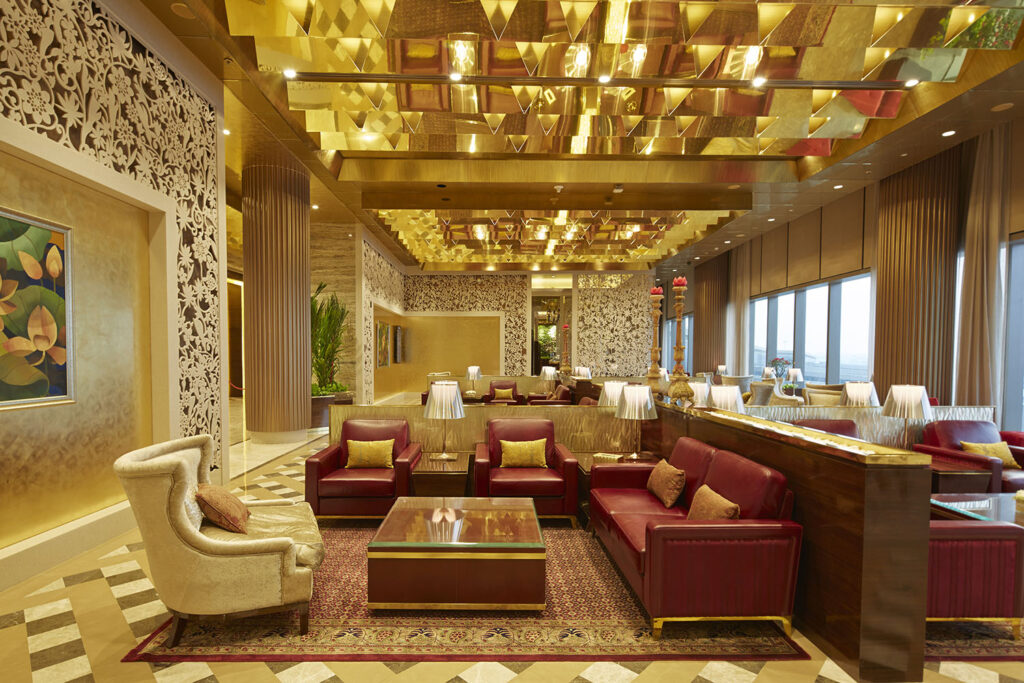
One of the key challenges of a 24/7 operation at airports is managing the critical supply chain of freshly prepared Indian food and other cuisines.
TFS runs central kitchens near several of its airports to help serve demand. These become even more important when there are flight delays during peak hours, holiday weeks or during foggy weather periods when there is severe congestion at the terminals. Most airlines have done away with offering complimentary food so travellers usually reach out to the food & beverage outlets, or access the lounges.
Managing such large operations at a high level of complexity adds cost too, but in a fast-emerging market with millions more travelling each year, one has to adapt fast.
“That’s the IP of TFS”, says Kapur. “We have learned it over the last 14 years, operating across several markets and refining the processes. Airports are high-security zones, so people movements are tougher, but through effective planning and having the necessary infrastructure to support our operations we ensure cooked food, ingredients and our people move seamlessly and swiftly from the back end to the front so passengers receive the highest level of F&B experience.
“I studied in New York; and many airports in the west look pretty much the same for several decades. But what we have seen here in India driven by the massive growth is that a new airport is built which reaches capacity in five years and once again it requires a new terminal to be added. This has been happening for the past 15 years and to continue to live up to this evolution is the biggest challenge for all of us in the market.
“Everything is so dynamic in India right now. We cannot say everything is set, let’s take a break for a year – that’s not going to happen. We need to be on top of our game.”
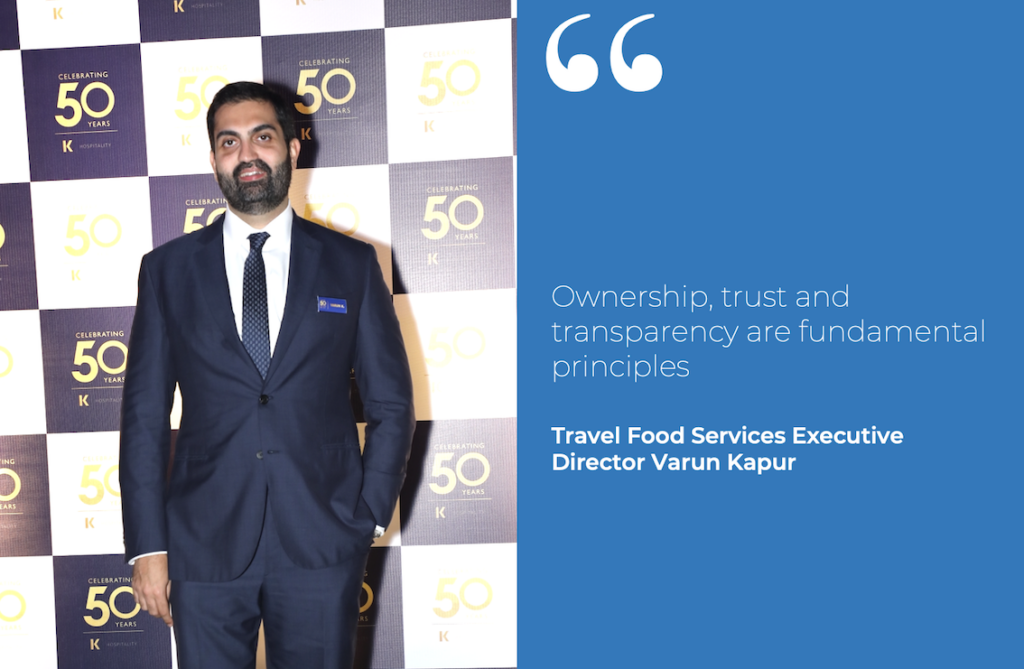
Kapur is excited about what the future holds, with an eye on increasing the footprint of operations to over 500 outlets over the next two years. Even with that investment, there are almost 100 airports in India, which are smaller in size, where TFS is not a player.
“Many smaller airports have sprung up in the past few years and we are keeping an eye on them as. We will continue to focus on building up our business in existing markets as well as keep scouting newer ones in the next ten years.
“We want to be in airport retail for the next 100 years. Perhaps we could be sending food to passengers on Space X and my great-great-grand kids might even continue to be in this business. However, our clear priority is to focus on the 25-30 top airports right now. And that is what we are working on.”
Among those current developments, the new integrated terminal at Chennai International Airport is high on the agenda. TFS will run a series of outlets at the facility, which was recently inaugurated by Prime Minister of India Narendra Modi, alongside a new world-class lounge. Once all international flights move in, TFS will scale up its services, aided by a large central kitchen that is located close by.
Kapur is also excited by the recently opened Manohar International Airport (MOPA) in Goa, a GMR-managed greenfield airport, and by the recently opened Terminal 2 at Bangalore Kempegowda International Airport.
After Adani Airports took over Thiruvananthapuram and Guwahati Airports in 2021 with aggressive plans to upgrade and improve the airports, TFS won F&B tenders at each. At Guwahati, among the concepts to open is Cafeccino which has seen great success, says the company. In an echo of TFS’ early days, this concept was the first to open under TFS management at Mumbai International Airport Terminal 1D in 2009.
What is also clear is that family values run like a rich seam through the TFS business, with the Kapurs hands-on with the day to day operations. I saw this myself when I was travelling through Bangalore Airport domestic departures some years ago, just days after a new common-use lounge had opened through TFS. Present in the lounge to ensure that the hospitality offer was at its best, and telling the team to smooth out any early wrinkles, was Founder Sunil Kapur. That personal approach to guest relations spans every aspect of TFS group operations.
Varun Kapur, who took on executive leadership in 2018, says: “Ownership, trust and transparency are the fundamental principles that my father has taught us, and we follow this meticulously. Our people come first and we ensure they are well taken care of. If they are happy, they will deliver great experiences to customers.”
While not involved in the day to day running of the business but Kapur Sr. continues to visit the outlets on his travels, quietly observes the operations and shares feedback with his son and the wider team. This, says Varun, helps the business improve both the operations and the offering.
As we sign off the interview, Varun offers an insight into what makes TFS a leader in the food travel business. “This business is all about emotions. We just don’t deliver a portion of food, but the entire experience should make the customer feel special. The place where one sits or collects the food, the packaging, the entire exchange of conversations – this is the most important message we share with our teams.”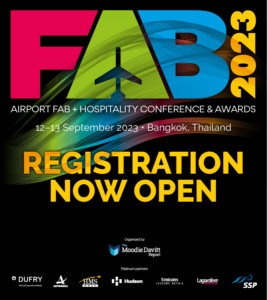 Another key message is that TFS can manage the rapid growth of India’s aviation market and demand for hospitality services arguably like no other player in the channel, with its years of experience and scale.
Another key message is that TFS can manage the rapid growth of India’s aviation market and demand for hospitality services arguably like no other player in the channel, with its years of experience and scale.
Delhi International Airport for example served 65 million passengers in the year to 31 March, or 178,000 every day on average, and TFS serves a key part of that audience’s demands through its F&B outlets. That means being consistently good on a vast operational scale.
And there is much opportunity ahead too. Penetration remains relatively low at most Indian airports, across retail and F&B. As Varun Kapur notes, this is just the beginning, and the next decade should be even more exciting than the past one.
A high level of talent at frontline and management level, strong, long-term airport partnerships and a broad mix of experiences to suit different demands and wallet sizes should keep TFS at the forefront of the Indian travel hospitality sector for a long time to come.
Note 1: The Airport Food & Beverage (FAB) + Hospitality Conference & Awards take place in Bangkok, Thailand on 12-13 September. The Moodie Davitt Report event, created in 2011 and hosted annually until the pandemic, will be held at the Millennium Hilton Bangkok. Delegates can access the registration portal via this link: https://airportfab.events/
Preferential room rates for FAB delegates can be booked with the hotel directly via the following link: Millennium Hilton Bangkok FAB 2023 Hotel Reservations.
Reservations at the preferential FAB rate must be made by Sunday 13 August and are subject to availability.
For all partnership, speaker, content and other enquiries, please contact Jeannie Wong, The Moodie Davitt Report Asia Bureau Chief and Head of Marketing & Events at Jeannie@MoodieDavittReport.com.
Note 2: The Moodie Davitt Report publishes the FAB Newsletter, which features highlights of openings, events and campaigns from around the world of airport and travel dining.
Please email Kristyn@MoodieDavittReport.com to subscribe.







